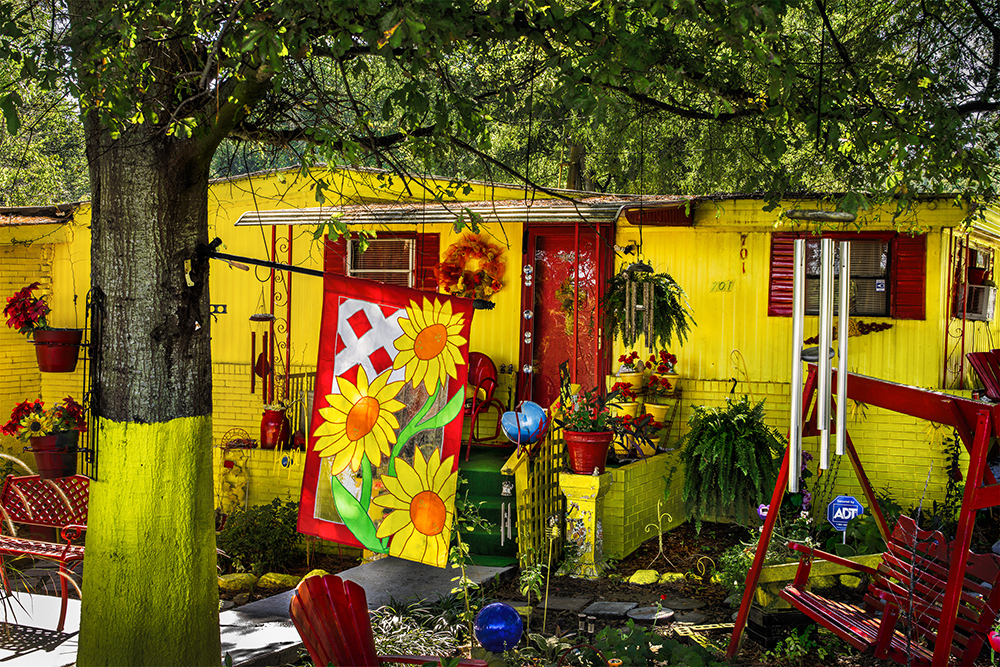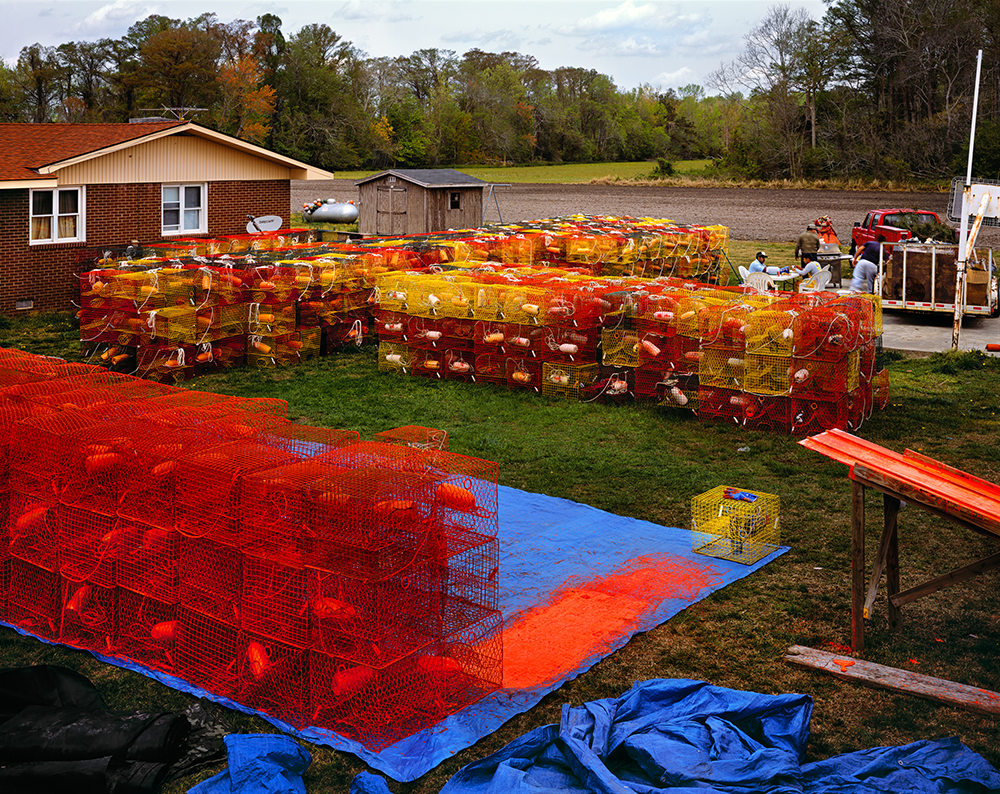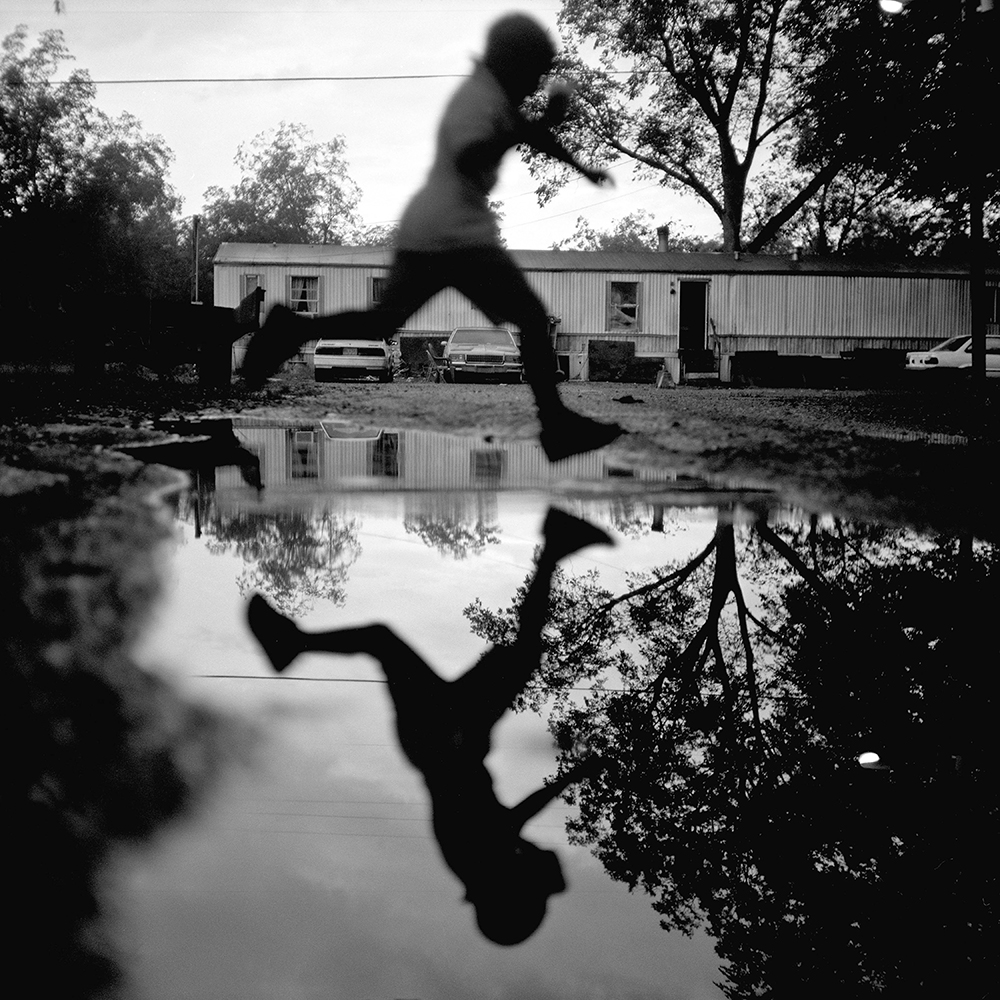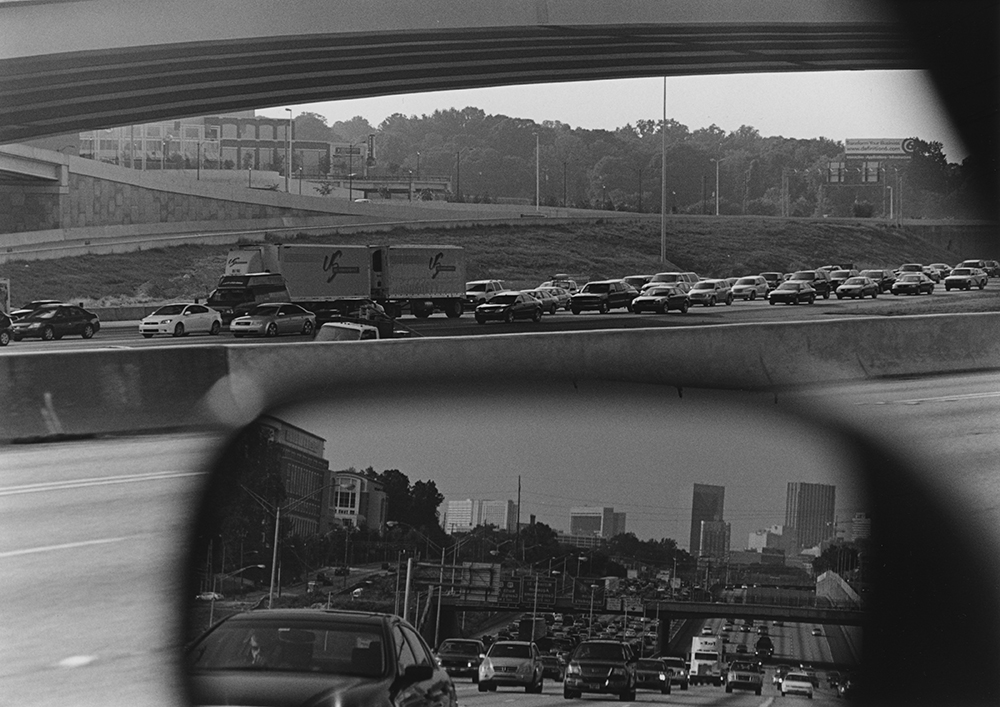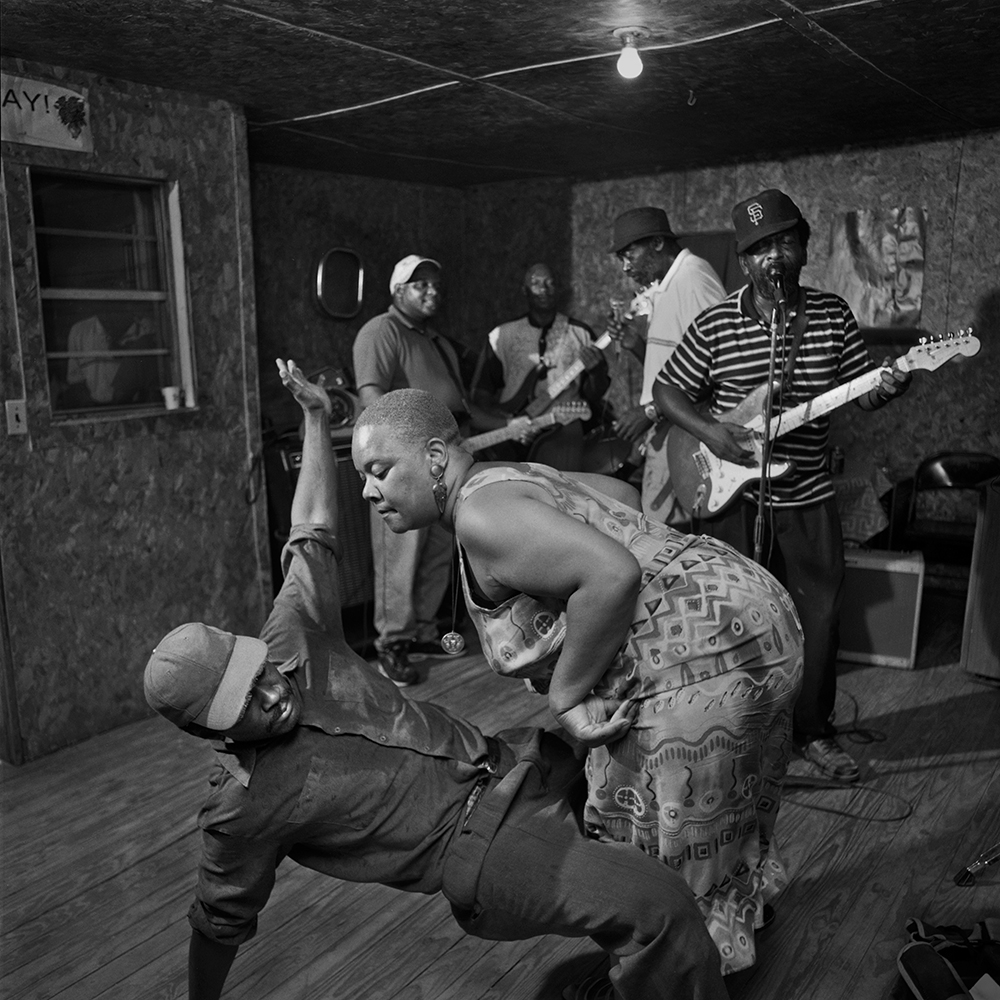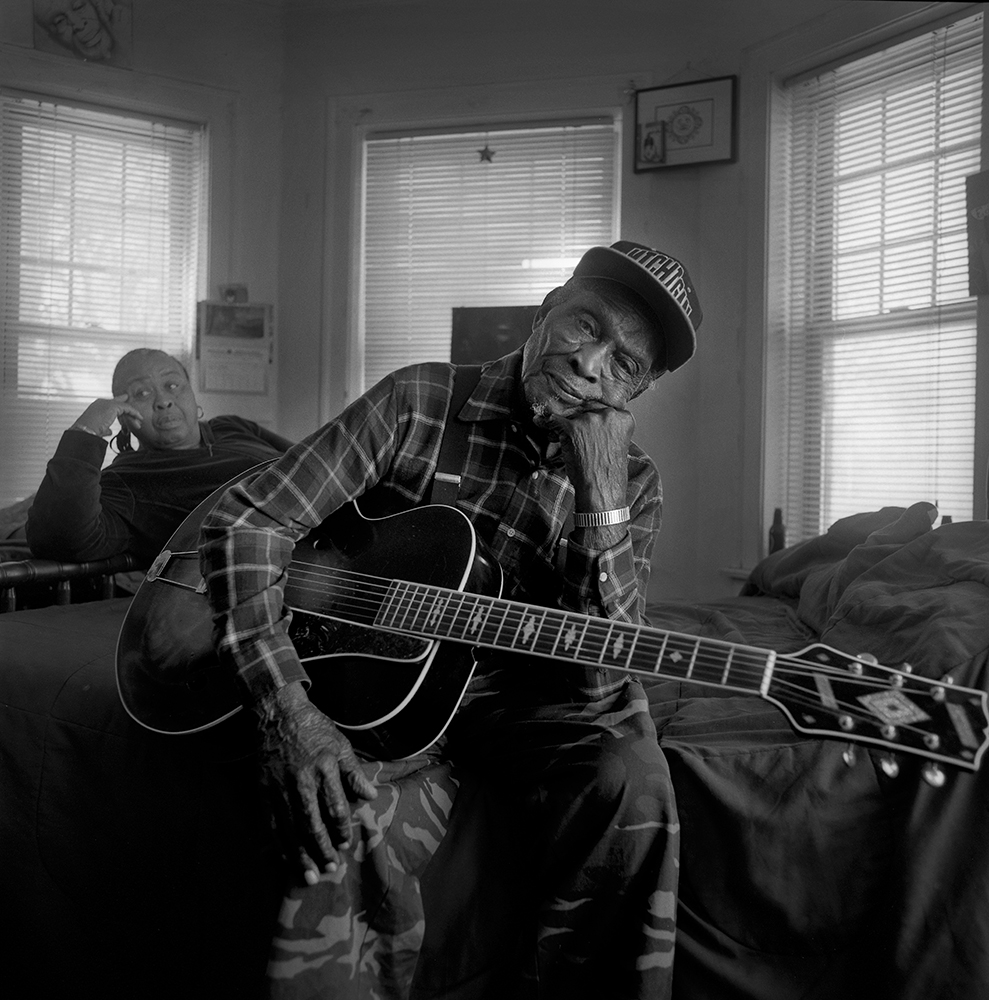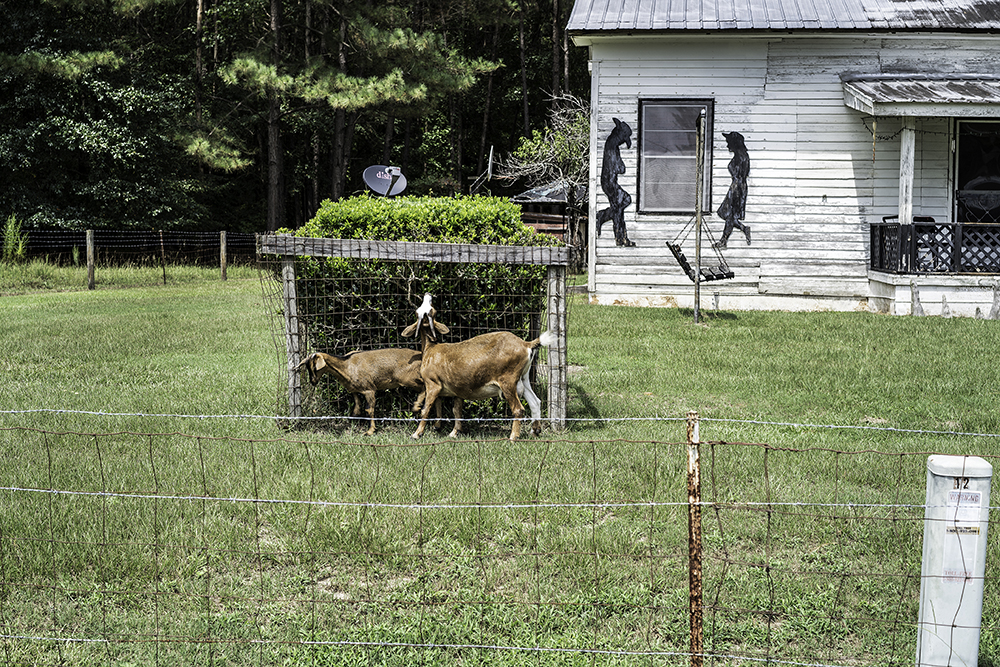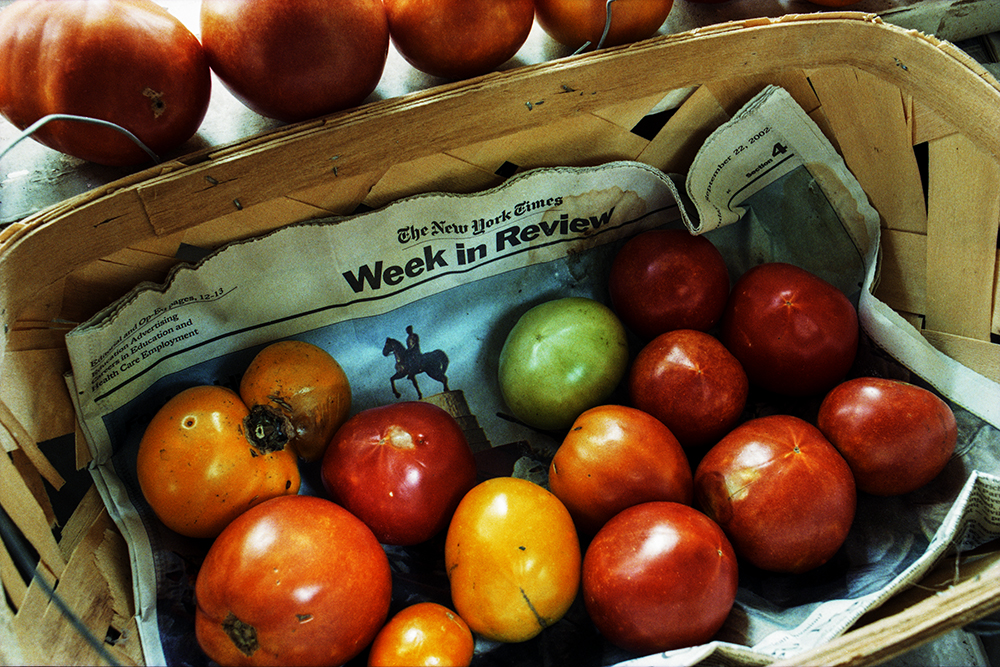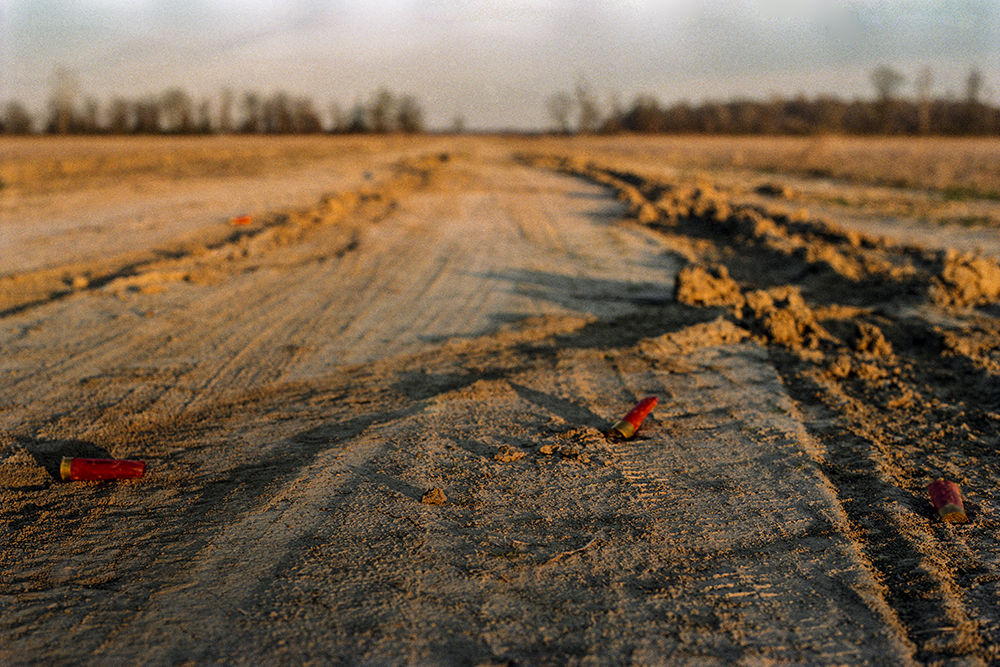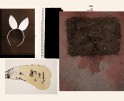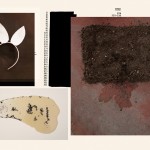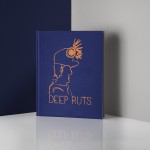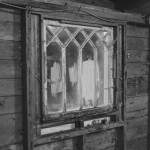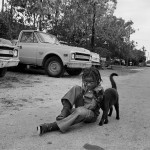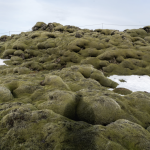Southbound: Photographs of and about the New South, Day 2
Nikky Finney is a renowned poet and educator originally from South Carolina who “involves herself in the day-to-day battles for truth and justice” while also guiding MFA students in her capacity as Chair in Creative Writing and Southern Letters at the University of South Carolina, among other appointments at the university.
She was commissioned to respond to the images from the Southbound project with poetry, and was allowed to view each image in the collection without any names, titles, or other identifying information. The curators “felt there was value in allowing the poet to view the narrative potential contained within each image as an image, even if slippage between Finney’s poetic musings and the actual facts of a photographs making might result.”
In the end, she selected four, but as stated to the curators, she could have written a story about every one of these photographs had she had the time, and was, in her words, struck like lightning by most every frame.
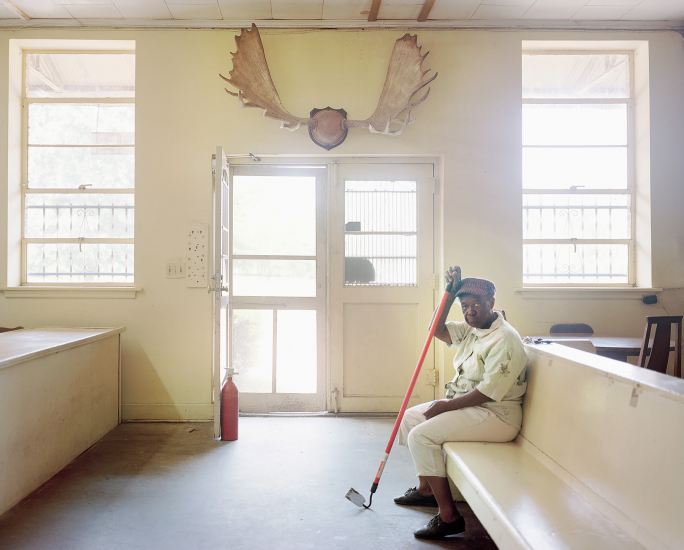
38669, Postmistress Ida, 2013. From the Post Script series. Sherard, Mississippi © Rachel Boillot
Black Woman Moose Lodge #719
(Ludie Mae Green edits the great Zora Neale Hurston with one stroke of her orange hoe)
On this wooden bench I have learned to pray for myself first.
Here, no, here, just below her glorious wings, I never know what
I will find. Just last week I came upon a book pulling me over to it
as soon as I walked in. I picked it up with both hands and squeezed
it tight. It was the great story of Eyes and God by the great Negress
authoress. In my day, I was the reading champ, so I and sat with it
like I had found an old friend. And soon there it was – still breast-high,
page 44, “De nigger woman is de mule uh de world so far as Ah can see.”
Just to see those words again, rising off the page like field smoke, words
I used to whisper every night after working in their kitchens all day. Well,
the memory of all that made me throw that sweet book, cover and all,
the whole way back down to that bench’s other end. I guess you could
say the great Negress authoress had hooked me once again. I picked it
back up and finished reading it for the five hundredth time. Reading
and reading, circling back to read some more, just to have the word-lights
of the great Negress authoress going off like lee-little lighthouses from one
end of me to the other. Inside the rich red soil of her words I feel pulled away
from their hot stove and dressed and ready for what I’m most famous for:
the okra and green beans of my garden. Even now as I sit here with my magic
wand: my life’s orange hoe, curled and waiting quiet in my hand, I do so believe
that a writer of her knack needs to know the effect she is still having on the
living who are still trying to live. Therefore:
Dear Miss Zora Neale Hurston, Even though you may be dead you are not gone. I write to thank you for fleshing me out on page 44. And if I may, I would like to offer one small edit of your great and perfect words. I, Miss Ludie Mae Green, would like to add to the official record of me, first reported in 1937, when you announced that the “De nigger woman is the mule uh de world….”. May I also say, she is the headless faceless moose of the world. We are gawked at and rode around on our backsides and worked to our death but our smart minds and pretty dark faces are also cut out of the final picture. What they can use is kept for sale and decoration, while our odd and precious other parts are hung up on the wall just like a trophy. In closing, I would like to say, American history is indivisible, and invisible too, and made from the pure wild wonderful wilderness of a Black woman’s life – so far as I can see.
Yours, Most Truly and Most Sincerely,
Ludie Mae Green
Reading Champ of 1945, Ninety-Six, South Carolina
Nikky Finney
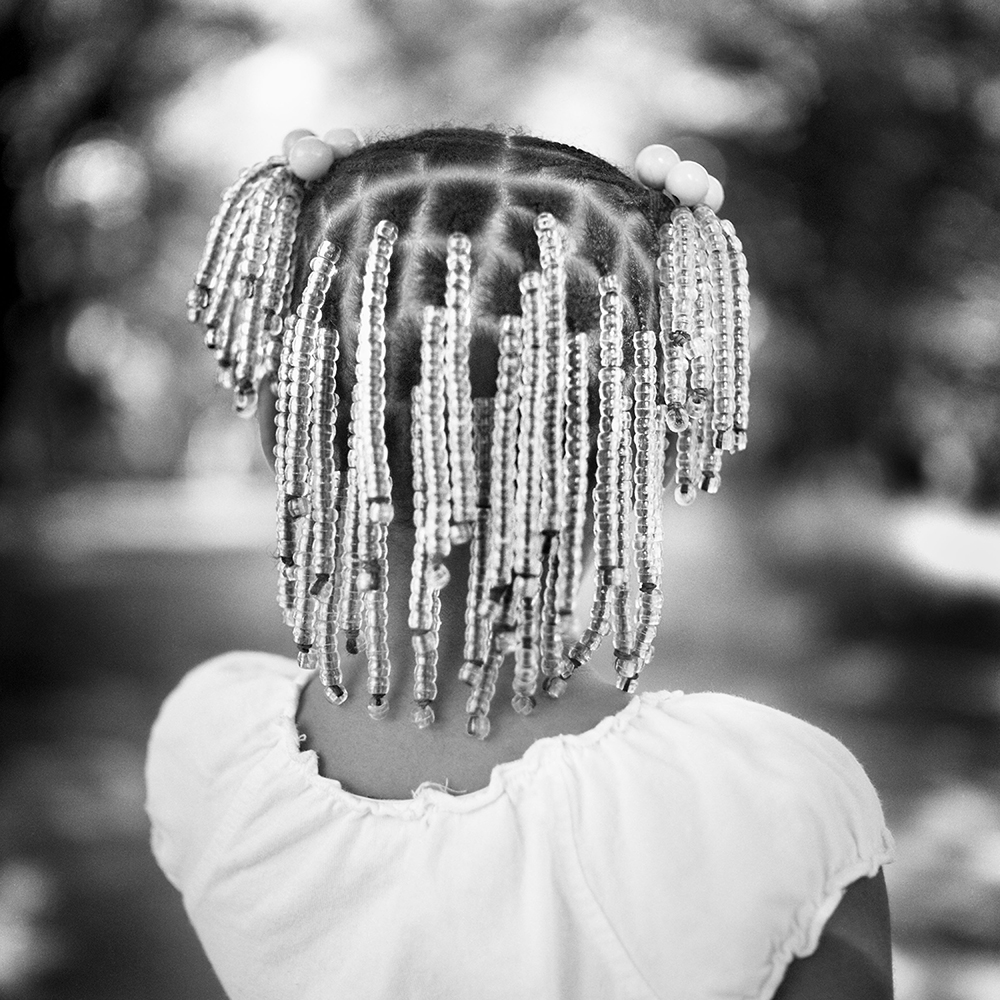
Maw Maw’s New Braids, 2009. From the When Morning Comes series Duncan, Mississippi © Brandon Thibodeaux
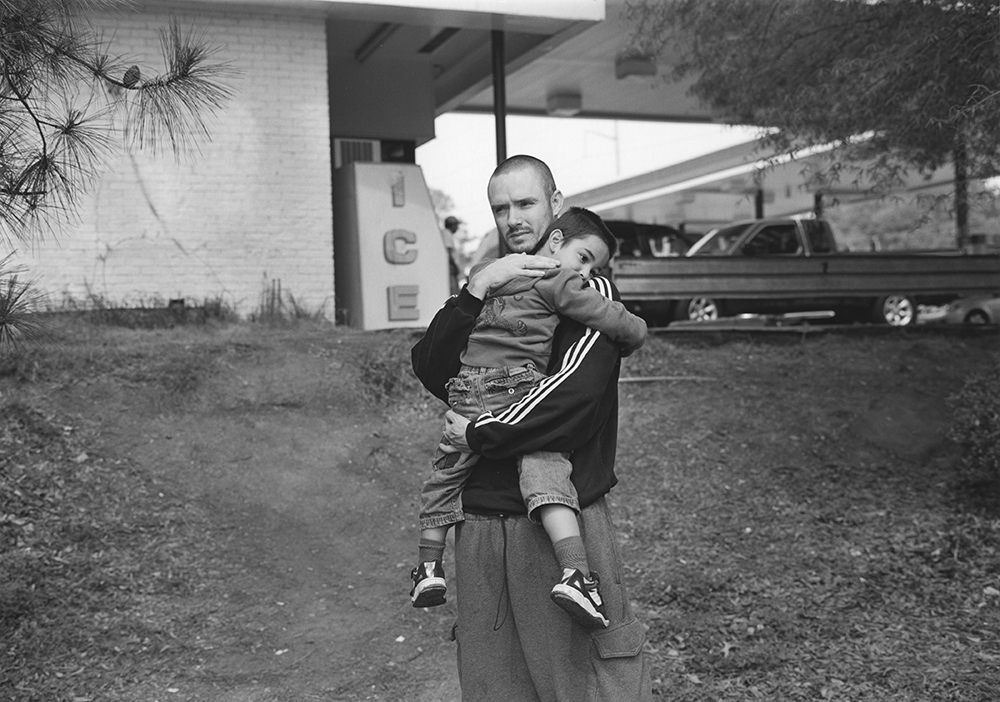
Atlanta, 2007. From the GreaterAtlanta series Atlanta, Georgia © Mark Steinmetz
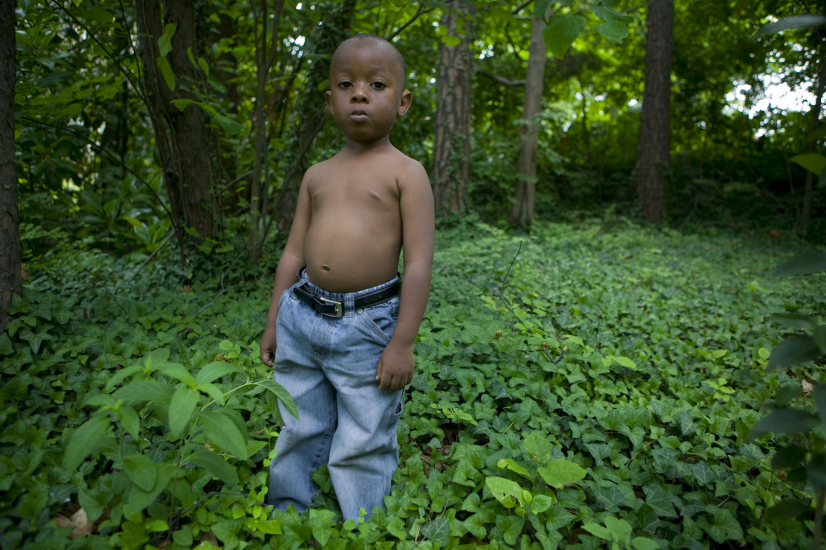
Devonte Hayes, 2008. From the Durham Stories: Not Hell But You Can See It From Here! series. Durham, North Carolina. © Titus Brooks Heagins
Little Man Standing in Clover
I come here to think not smile. Cut that.
Prefer turf where I am taller than the clover.
Green is my granddaddy’s favorite color.
Daddy’s ’72 Eldorado is green. Everything
I like to think about was born before me.
I want to be a man like my daddy. Great
granddaddy takes his shirt off in the sun.
Cut that. He says it will take time and luck
for me to be a man and that’s when mama
yells out from where we didn’t know she
was listening, “prayer.” I never come here
to think without my belt locked and loaded.
Uh-uh. Cut that. A man needs his belt when
he comes from these parts. Snakes hide out.
Ain’t scared of no snake. Cut. That. I got
something for a snake. Wanna see? Daddy
says a man should keep his chest out in the
sun as much as he can so his six pack will
grow and his eyes won’t run. Daddy says
a man needs one good belt and if it’s right
he can wear it to church on Sunday then
to work on Monday and nobody can tell
the difference. Cut that. Smiling is for
cabbage patches and girls in tops.
Nikky Finney
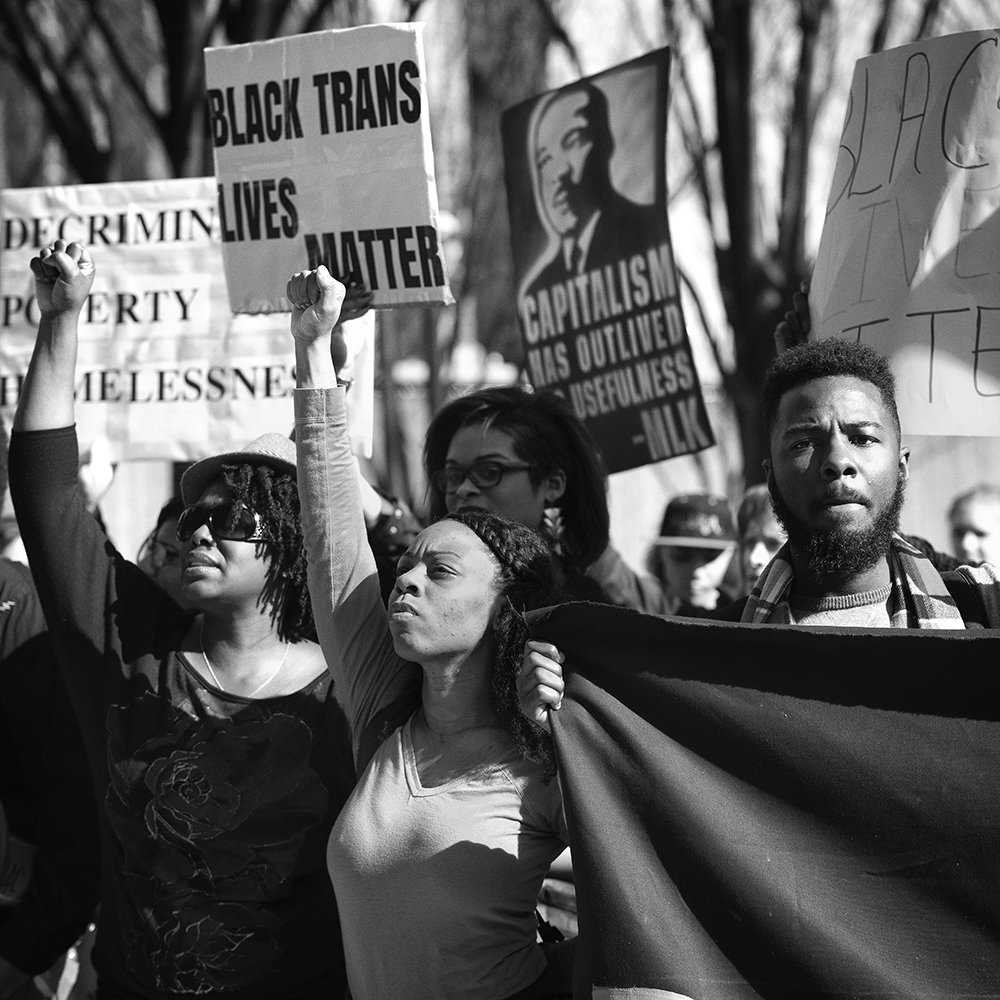
#ReclaimMLKDay, Black Lives Matter Disrupts M.L.K.Jr. Day Parades Across the Country, 2015 From the #1960Now series Atlanta, Georgia © Sheila Pree Bright
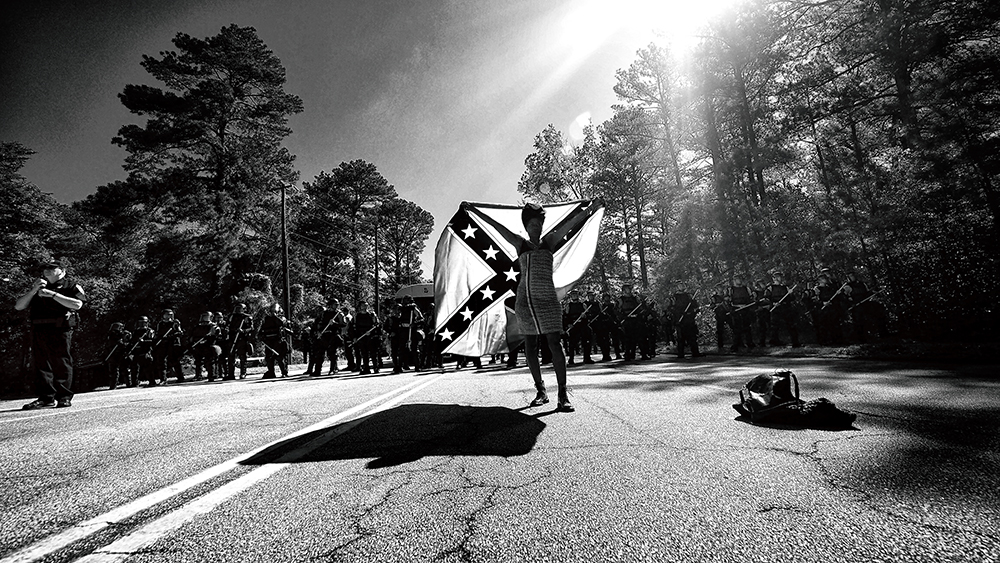
Protesting White Nationalists at the “White Power” March in Stone Mountain ParkI, 2016 From the #1960Now series Atlanta, Georgia © Sheila Pree Bright

Teddy and his boyfriend Chris spend time together outside Teddy’s home in Chesapeake, Va., on Friday, June 14, 2013. © Preston Gannaway
Magnolia Garden Homes, High Noon,
Unit #144, Parking Lot H
Thick kudzu arm lover, the one who gives my thighs their bass & drum, our backyard needs more art, I offer us, volunteer, me & you, here, in our open fort of love, before the sirens come, while they try and decipher the call from the screaming old man in the window of #142, holding his arm and Bible outstretched like a flaming cross in the air, while they slow roll the front gates, approach with blue lights silently whirling, keep your blue berry lips right where they are, filibuster and plunge more smoke & tobacco into my ear, We are here, Baby, right now, so let the sun be the artist it is with every thing else fighting to live & breathe, let the sun etch and burn us into more than just an unwonted sight in the back lot of our Magnolia Gardens, let the sun chisel me & you deep into the land and geography, bake us, into more than a high burning wall of man lips & thighs, sweet man made just for me, man made of honey & hive, hold your chin up next to mine, we are being closely watched, the artist needs to get us right, bake
me into clay and statue with you, I want magnolia and ivy to grow fat and slow, wrap our feet and legs, summer & winter, fall, I want someone in overalls, who knows the art and arc of cling & fuse to arrive and attend to us like they attend to other fine obelisks ofgreat import, other conspicuous monuments in the park, I want him, or her, to have a steady hand, to trim and clip us here & there, for forever, and for two days after that, to keep our lover’s embrace monumental & in tact, and ten feet tall, who, if not us,
will make our winding hungry black bodies permanent eyes and arms of the great garden, tonight, while others die walking and running in the dark from the blue barking orders to stop and frisk, here in our man made sculpture garden we will do any and every thing but stop, we will stand our lover’s ground, two men of soft muscle, two diamond hard tongues, one doo rag, hewn & cut in twin shades of blazing black marble.- Nikky Finney
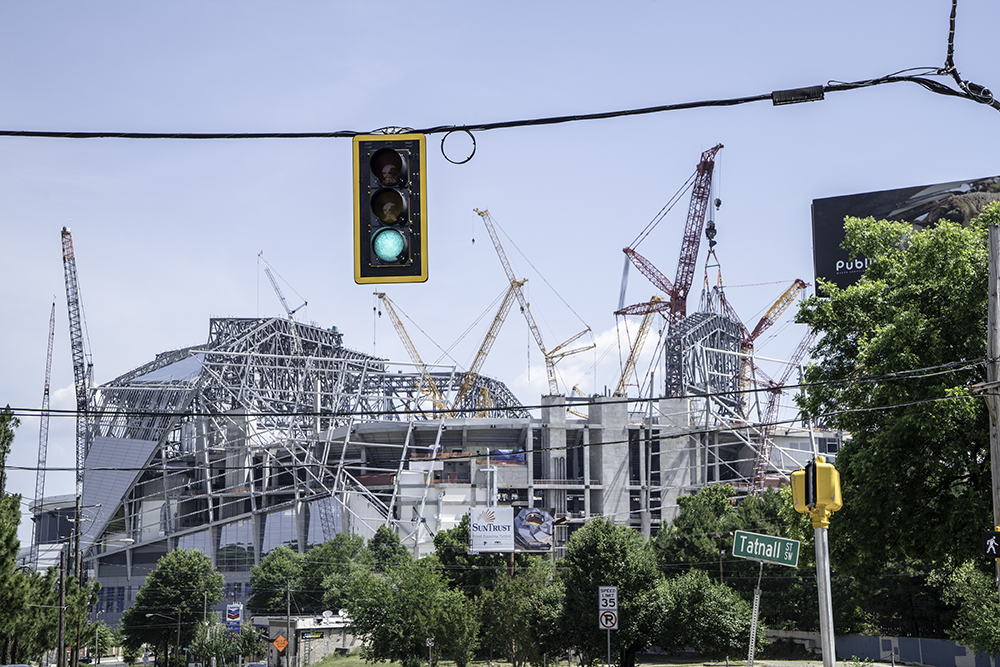
Mercedes Stadium, 201. From the Taken in the South series Atlanta, Georgia © Lucinda Bunnen
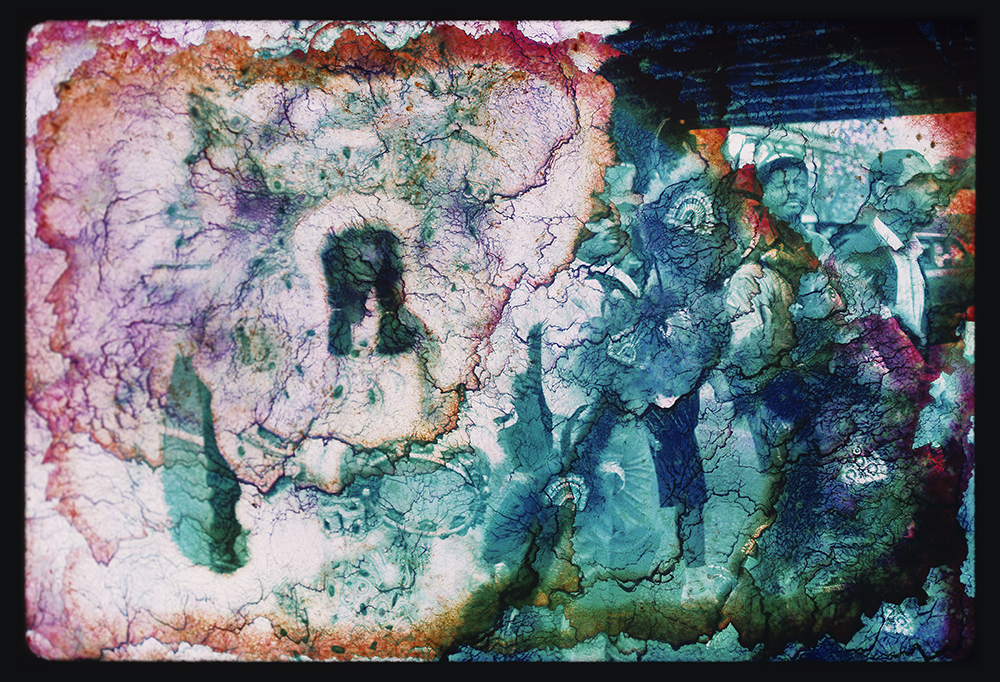
Big Chief Allison “Tootie Montana” and the Yellow Pocahontas Indian Gang,1980s, ca. 2010. From the New Orleans Black Indian Nation series, 7th Ward, New Orleans, Louisiana © Keith Calhoun & Chandra McCormick
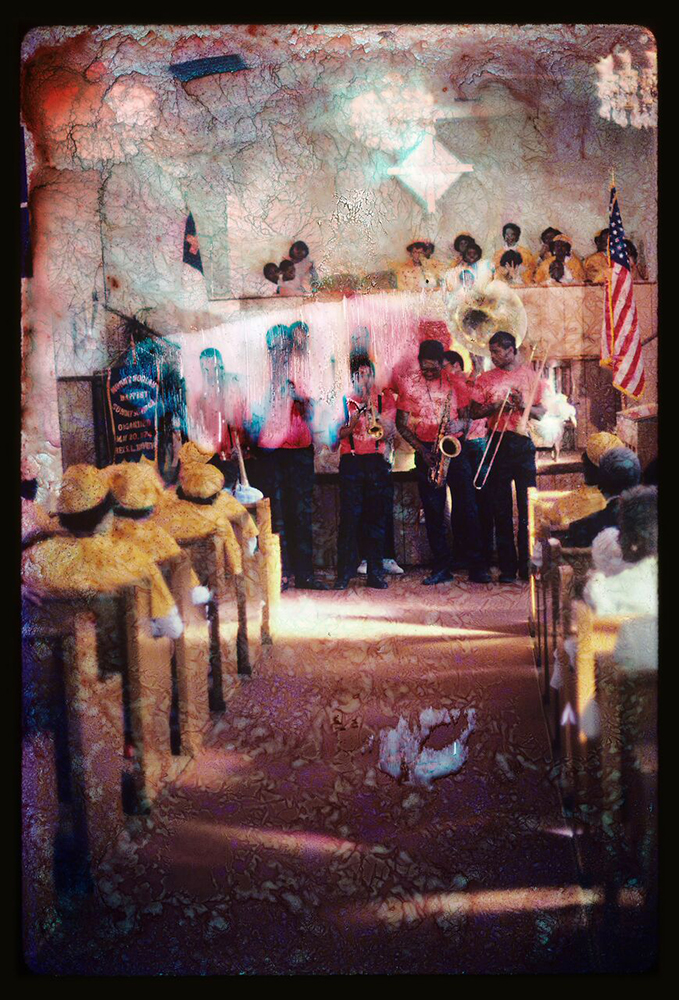
Rebirth at Mount Moriah Baptist Church,1997, ca. 2010. From the New Orleans Music series New Orleans, Louisiana © Keith Calhoun & Chandra McCormick
Miss Polly Is Akimbo Underneath
the Mother Emanuel Collection Table
The one who came to start the next Civil War
speaks to her directly. “Have I shot you yet?”
There is no one else left to answer. In the church
basement all are dead or bleeding out. Miss Polly,
half on her knees, is askew, tilted, her last angle,
akimbo to the eight others who are sprawled and
already spiraling toward heaven. In her mind she
too is about to die. There is no place to hide when
you are the last one facing the waving gun. The air
has been invaded by a poison mix of bright red ore
spewing from his mouth. There was a spilling.
There is about to be another. He cannot see the
seeping septic colors but she can and there is no
isthmus wide enough, beneath her shield of a table,
to keep her from the current of his non-stop debris.
A floating band of iron orange tincture crooks her
pounding heart but does not push her downstream.
She waits sideways, as high up as she can, refusing
to look at him. She knows how evil can enter through
the iris if beheld too long. She will not be all black
and blue unsure of what has been released in the
room. A river of flaming copper is moving slowly
through her blood. She is an honest woman and
has seen with her own two honest woman eyes,
what hate erupting inside a man can do and what
this one has done. She decides her last words on
this earth will not be camouflaged and khaki,
handed over just before he runs out the same way
he walked in. When he shot the Pastor first she
could have faked it, fallen over sideways, held her
self perfectly still, asked her body to lie for her but
that would not have been the life she has lived. It
will not be the death she dies at his feet. She turns
into the last one standing and her molten answer
arrives, the color of pounded beets, beaten out of
their safe skins, her persimmon words outline every beloved
bullet riddled body still lying on the floor. “No, you have not.”
Nikky Finney
Posts on Lenscratch may not be reproduced without the permission of the Lenscratch staff and the photographer.
Recommended
-
Shinichiro Nagasawa: The Bonin IslandersApril 2nd, 2024
-
The International Women in Photo Association Awards: Lorraine Turci: The Resilience of the CrowMarch 16th, 2024
-
The International Women in Photo Association Awards: Rayito Flores Pelcastre: Chirping of CricketsMarch 14th, 2024
-
The International Women in Photo Association Awards: Louise Amelie: What Does Migration Mean for those who Stay BehindMarch 12th, 2024
-
Brandon Tauszik: Fifteen VaultsMarch 3rd, 2024

